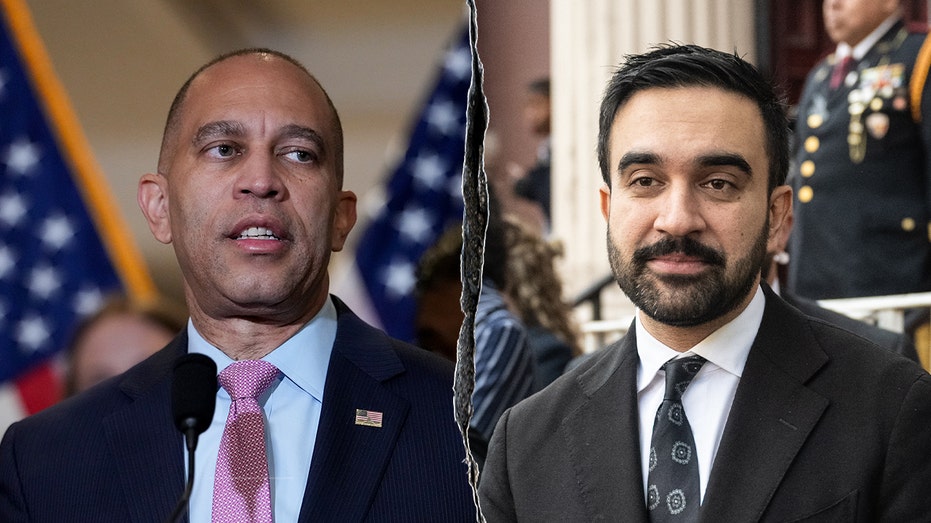The aftermath of Zohran Mamdani’s stunning mayoral win in New York City has sparked a quiet tension within the Democratic Party. When directly asked if Mamdani, a self-described Democratic socialist, represents the party’s future, House Minority Leader Hakeem Jeffries offered a carefully worded deflection.
Jeffries pivoted to emphasize the Democratic focus on affordability, framing high costs as a national crisis exacerbated by Republican policies. He pointed to Trump-era tariffs and perceived attacks on clean energy as drivers of rising expenses for American families, specifically citing soaring electricity and healthcare bills.
Pressed further on his personal comfort level with a socialist leading the nation’s largest city, Jeffries offered a pragmatic response. He acknowledged Mamdani’s victory and stated the importance of ensuring his success as mayor, sidestepping any direct endorsement or expression of ideological alignment.
While progressive figures like Senator Bernie Sanders and Representative Alexandria Ocasio-Cortez quickly rallied behind Mamdani, support from the party’s established leadership was notably delayed. Jeffries himself hesitated to offer an endorsement until the eve of early voting, and Senator Chuck Schumer never formally endorsed the candidate, though he called the win “historic.”
Mamdani’s victory is groundbreaking on multiple fronts. At 34 years old and an immigrant from Uganda, he is poised to become New York City’s first Muslim mayor, representing a significant shift in the city’s political landscape.
Jeffries previously suggested the future of the Democratic Party rested with current House Democrats already working across the country. He characterized Tuesday’s election as a resounding victory for the American people and the Democratic Party as a whole, extending beyond New York City to include wins in California, Virginia, and New Jersey.
The election results, according to Jeffries, represent a clear rejection of Donald Trump and the policies of the Republican Party. This assessment arrives amidst a prolonged government shutdown – now in its 36th day – stemming from disputes over Obamacare subsidies and healthcare benefits, marking the longest closure in U.S. history.
Despite repeated Senate Democratic votes against a House-passed budget resolution aimed at reopening the government, Jeffries expressed confidence that voters are holding President Trump and Republicans accountable for the impasse. He predicted further Democratic gains in 2026, specifically targeting a return to control of the House of Representatives.
Jeffries also highlighted the passage of a California redistricting proposition, championed by Governor Gavin Newsom, as a key factor in Democrats’ path to regaining the House. He confidently asserted that Republican attempts to manipulate electoral districts are over, paving the way for a Democratic resurgence.
The message was clear: Jeffries anticipates a significant shift in power, fueled by voter dissatisfaction and strategic political victories. He concluded with a promise of more gains to come, signaling a determined effort to reshape the political landscape.






